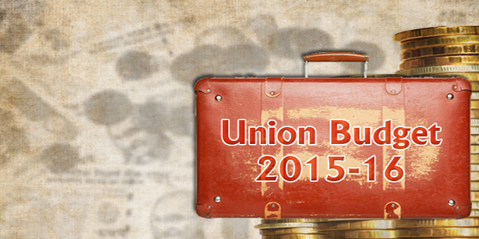Projectmonitor presents a cross-section of views from Corporate India on Union Budget 2015-16.
‘Big thrust to ease of doing business’
 — L.K. Gupta, MD & CEO, Essar Oil Ltd
— L.K. Gupta, MD & CEO, Essar Oil Ltd
I think the big thrust of this year’s budget is increasing the ease of doing business in the country. There are a number of initiatives the finance minister has undertaken for this. This will create ground for the next leg of our economic development. He has not tinkered much with taxes and this clearly indicates government’s policy towards a stable and predictable tax regime, something which investors look forward to.
On the positives, we are happy to see that the government is encouraging ‘Make in India’ campaign by working on creating an overall favourable framework, like infrastructure creation, lowering of corporate tax rate, access to funds, implementation of GST. Over the coming weeks and months, we will look forward to more clarity on all these announcements. I also see government very serious about encouraging finance professionals back in the country, many of whom have left to for lack of suitable opportunities here.
Coming to our sector, the finance minister has not addressed many of our genuine expectations. We wanted the government to remove basic custom duty on imported natural gas, currently at 5 per cent as it is an inverted duty. There is shortage of domestic natural gas and imported natural gas is very expensive, thus putting additional burden on us. Also, with petro products out of the ambit of GST currently, we would have liked the government to reduce CST to from 2 per cent to 1 per cent, in line with the proposed Constitutional Amendment bill on GST, before eventually making it zero with bringing the petro products under GST. Here too, refiners bear this burden which is neither reimbursed by the customer nor is recoverable or can be offset.
Government has also not provided relief to E&P companies for their demand of service tax credit. Service tax drains away a substantial part of their funds fund and since crude oil and natural gas produced are not liable to excise duties, companies cannot take CENVAT credit of service tax incurred for exploration and production. We had hoped that the government would formulate a scheme for refund of service tax paid by E&P companies or services provided to E&P companies may be ‘zero rated’, so that there is no stranding of taxes at the hands of service providers.
‘We welcome the national infrastructure fund’
 — Anil Chaudhry, Country President and MD, Schneider Electric India
— Anil Chaudhry, Country President and MD, Schneider Electric India
Union Budget 2015-16 has created a sustainable growth momentum by focusing on allocations for infrastructure and subsequently a higher emphasis on the fiscal deficit. The measures and allocations announced in the budget should accelerate large-scale infrastructure development in the country. The government’s decision to allocate Rs.70,000 crore augurs well for the infrastructure sector. We welcome all these moves by the government and particularly applaud the decision to set up the national investment and infrastructure fund with an annual outlay of Rs.20,000 crore as it will boost the planning and development of upcoming infrastructure projects. The budget looks pragmatic and the increased outlays on infrastructure will see the creation of job opportunities in the country.
‘Plug-and-Play model is a new approach to bidding’
 — Anil Sardana, CEO & MD, Tata Power
— Anil Sardana, CEO & MD, Tata Power
The finance minister has rightfully focused on policy and taxation reforms to provide much needed and opportune impetus to strengthening of the economy. The budget has strongly indicated the government’s desire to move towards an annual growth of 8 to 8.5 per cent this fiscal year.
The budget enhanced target of 175,000 MW for renewable energy by 2022, and also proposed five new ultra mega projects on plug-and-play model, with a capital outlay of Rs.100,000 crore. This is much appreciated and this model will be good to learn the new approach to bidding and awards.
The proposal to set up regulatory process of permissions than seeking clearances, so that work can commence on investments without holding up for permissions is a welcome move. The government also launched e-Biz portal that would help to integrate regulatory permissions at one source. This has been a longstanding need of the industry.
The government is targeting Housing for All and 24×7 electricity for all by 2022. Electrification of remaining 20,000 villages 2020 is the need of the hour. These targets need states to reform distribution sector and this aspect has thus far been illusionary in most of the states.
We look forward to introduction of more schemes like rationalisation of minimum alternate tax and introduction of innovative financing schemes for power sector.
‘Hike in steel import duty will benefit domestic industry’
 — T.V. Narendran, MD, Tata Steel, India & Southeast Asia
— T.V. Narendran, MD, Tata Steel, India & Southeast Asia
The budget seeks to provide an environment that attracts investment in industry and propels economic growth. The proposal to do away with different types of foreign investment caps and replace them with a composite cap is welcome. Quick implementation of market and policy reforms proposed in the budget will help in achieving a GDP growth of 8.5-9 per cent y-o-y. The proposal to reduce corporate tax to 25 per cent in the next few years is welcome.
The Rs.70,000 crore earmarked for the infrastructure sector, too, augers well for sectors such as steel and cement. The proposed National Skills Mission will enhance employability of rural youth in industry. The new tourism scheme and the government’s proposal to issue visa on arrival to nationals from 150 countries will greatly benefit the hospitality and services sectors.
The move to appoint an expert committee to prepare draft legislation for obtaining regulatory clearances expeditiously is a step in the right direction. Increase in import duty on steel will help in improving the competitiveness of the domestic steel industry.
‘The government has stayed its strategic course’
 — Ravi Uppal, MD & Group CEO, Jindal Steel & Power Ltd
— Ravi Uppal, MD & Group CEO, Jindal Steel & Power Ltd
The government needs to be commended for staying its strategic course. The budget is consistent with its policy stance and stands for continuity. It creates a predictable policy environment, which should go a long way in soothing the nerves of investors. This along with its stress on creating a transparent and ethical context for business will boost the confidence of both doth domestic and foreign investors. Also commendable is its commitment to enhancing ease of doing business in India through measures like single-window clearance.
‘Increase in customs duty on CVs is disappointing’
 — Anders Grundstromer, MD, Scania Commercial Vehicles India
— Anders Grundstromer, MD, Scania Commercial Vehicles India
We at Scania feel, overall, this is a balanced budget with emphasis on manufacturing as part of ‘Make in India’ along with appropriate importance to skilling India. We also like the government’s commitment to make the development process as environment friendly as possible. While the increase in customs duty for commercial vehicles is disappointing, overall the positives outweigh the negatives.
The clear commitment to implement GST by April 1, 2016, which is a game changer, easing of norms to aid flow of technology, flow of capital, and focus on sustainable development along with a road map of clearly stated goals in terms of 1 lakh km of roads, doubling the clean energy cess on use of coal and launch of a scheme for faster adoption are all measures in the right direction. However, we would have liked to have seen more clarity around the country’s biofuel agenda and sustainable solutions in the transport sector. Bio-ethanol promises carbon savings of about 70 per cent.
Overall, the broad contours are all positive and we look forward to partnering with India on this exciting journey.
‘Credible with higher allocations for infrastructure’
 — Sivasubramanian Natarajan, MD, ThyssenKrupp Industries India Pvt. Ltd
— Sivasubramanian Natarajan, MD, ThyssenKrupp Industries India Pvt. Ltd
The new government’s budget is, indeed, a forward looking budget. It seems to be more credible with higher allocation for infrastructure along with clarity in taxation structure. The proposal for five ultra mega power projects is definitely a positive move and a big boost for growth. The progressive nature of the budget will provide the much needed impetus for growth and timely implementation will put the economy back on track. Clarity is awaited on a lot of points; however, the overall approach is positive.
‘Proposal for five new UMPPs is a welcome move’
 — Rathin Basu, Country President, Alstom India and South Asia
— Rathin Basu, Country President, Alstom India and South Asia
Given the limited fiscal space, Finance Minister Arun Jaitley has taken several small but positive steps instead of any big bang reform announcements. While there are positive initiatives towards power sector including UMPPs and renewable projects, one needs to see the execution speed, particularly in view of huge NPAs stuck with IPPs and state discoms.
The budget proposal to set up five new ultra mega power projects of 4,000 MW each is a welcome move. The budget has also proposed tax-free infrastructure bonds for projects in the rail, road and irrigation sectors. I am of the view that the ambit of such instruments must be expanded to include power as well, given that power sector also needs sizeable investments in line with the government’s commitment of power to all by 2022.
‘Budget will kick-start stalled investment cycle’
 — Mahesh Singhi, Founder & MD, Singhi Advisors
— Mahesh Singhi, Founder & MD, Singhi Advisors
The government has provided major boost in infrastructure spending across sectors. Overall, the government has increased budget allocation for infrastructure projects by Rs.700 billion. Majority of these funds will be invested in roads (+Rs.140 billion), rail (+Rs.100 billion), ports, airports etc. The public sector companies will also increase their capex allocation by 30 per cent to Rs.3.1 trillion. These steps could kick-start the stalled investment cycle in the country.
‘Reemphasis on commit to renewable energy’
 — Vineet Mittal, Vice Chairman, Welspun Renewables
— Vineet Mittal, Vice Chairman, Welspun Renewables
Overall it’s a positive budget for the industry as direct investment in infrastructure sector will surely lead to increase in GDP growth. With the announcement of the renewable capacity target, the finance minister has reemphasised the government’s commitment to renewable energy.
The infrastructure sector has been facing funding challenges and some of the measures introduced will surely help this situation. By doubling the cess on coal to Rs.200 per tonne, the government is creating an additional corpus of funds for clean energy projects. Rs.75,000 crore has been apportioned for infrastructure sector. We are happy that it’s a sizeable amount.
The National Investment and Infrastructure Fund with an annual flow of Rs.20,000 crore has been announced and this will help raise investment as equity in infrastructure finance companies, which can further fund the renewable projects at competitive pricing. This could be used to develop a sizeable IDF to fund the huge capital outlays required to achieve the target of 175 GW by 2022. The IDF can make a substantial contribution to the infrastructure development and can attract investors if provided tax breaks for the investors.











